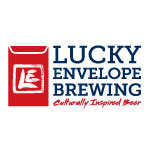Image from pexels.com.
For many years, beer has been something that helps people relax and enjoy social events. It is also a sign of celebration and an important part of different cultures. However, how beer goes from the farm to your glass can be quite mysterious.
Many people who love their favorite beers do not know much about where these drinks come from, how the ingredients are sourced, or what kind of effect making them has on the environment. This lack of clear information is becoming more and more worrisome for buyers, especially because craft beer is getting very popular nowadays.
Now, let’s talk about Ethereum. It is the second-biggest blockchain platform globally and it can’t be said for sure what will the Ethereum price prediction tomorrow will be. But one thing we know is that its ability to change the beer industry cannot be ignored. This new technology has great potential for changing how we keep records of beer, comprehend its history and relate with those who make it – all in a way that could greatly benefit this thriving sector.
Transparency From Grain to Glass
Imagine picking up your favorite IPA and raising a glass, knowing exactly where every hop in that brew was grown – right down to the specific farm, their green methods and even when they were harvested. With Ethereum blockchain technology, this is possible now. Brewers can use this technology to note each step in making beer, starting from getting raw materials like hops and barley all the way to putting the finished beer into bottles.
This information is then kept safe on a digital ledger that nobody can alter, and anyone can see. People who buy the beer use simple apps to check this data, making sure where their beer came from and how good it is. This openness builds trust between brewers and customers, allowing the customers to make smart buying choices that match their values.
A Toast to Ethical Sourcing and Sustainability
Many consumers now want to support businesses that are ethical and have sustainable practices. Blockchain can be very useful for making sure there is transparency in these aspects. Breweries dedicated to using organic ingredients can place this data on the blockchain, giving consumers verifiable evidence.
Additionally, this technology has the ability to track the carbon footprint of beer throughout the whole supply chain. This helps breweries find places where they can do better and do less harm to the environment. Picture a world where lovers of craft beer can pick their favorite drink, knowing it was made with little harm to the environment – making both their taste buds and the planet happy.
Streamlining Distribution: Smart Contracts for a Smoother Brew
In the beer distribution world, there is a complicated web of breweries, distributors and retailers. These parties often face inefficiencies such as errors in orders or invoices due to miscommunication between them.
Ethereum’s smart contracts can solve this issue by automating tasks like ordering from the brewery, creating an invoice for the distributor and making payment – all executed without any need for human intervention. This not only cuts down on administrative expenses but also gets rid of mistakes and hold-ups linked to conventional ways.
Consider a situation in which a distributor automatically places an order for more of a well-liked IPA from a brewery whenever the inventory levels decrease, all because of a smart contract. This method greatly enhances efficiency for each participant involved – starting with the brewer up to the distributor and eventually ending at the consumer who receives their preferred beer more swiftly.
Craft Beer Goes Global
For craft breweries, the main problem they encounter in exporting their beers is the complicated regulations and huge amount of paperwork. Blockchain technology could help with this by creating an easy-to-use system for international trade that guarantees safety and prevents any changes to documents or transactions.
For small breweries, this might be a game-changer. They can make use of it to enter new markets and distribute their special brews all over the world. Picture a dedicated craft brewer in Seattle smoothly exporting their IPA that won awards to a beer festival in Europe, with blockchain dealing with all required paperwork without any issues.
Big Beer Embraces Blockchain
The craft beer market is perfect for blockchain, yet big players are also becoming interested. In 2018, it was said that Anheuser-Busch InBev – the biggest brewer globally – utilized Ethereum to monitor advertising details about its Budweiser brand. This shows how blockchain can be beneficial even for the largest businesses in this industry.
“We’re building a company to last for the next 100 plus years and that can only be done by disrupting existing paradigms through innovation and putting consumers at the heart of everything we do,” said Lucas Herscovici, AB InBev’s Global Marketing Vice President of Consumer Connections, Insights and Innovation.
“When we started digging into the potential of blockchain, we began to realize that if Kiip was started today, it would be built on blockchain technology,” said Brian Wong, founder and CEO of Kiip, a leading ad tech and data platform powering mobile advertising. “Blockchain’s magical impact comes in the form of its immutable and decentralized ledger technology. Data that is stored uniquely in thousands of servers can never be manipulated. We saw this technology’s potential to impact several major areas of the advertising world, including supply-chain transparency, campaign data reconciliation and viewability verification. Single Ledger, quite frankly, is just the beginning for us.”
More recently, Budweiser’s move to purchase the domain name “Beer.eth” for 30 ETH (around $81,000 at the time) and an NFT art piece for 8 ETH (around $21,000) further highlights the growing interest in blockchain within the beer industry.
Brewing a Brighter Future
While blockchain technology gives exciting possibilities, there are issues to think about before it can be used everywhere. One main problem is scalability – for example, the Ethereum network sometimes gets crowded and this might make transaction processing slower.
Governments must solve complex regulatory challenges as they figure out how to fit blockchain technology into current legal systems. And also, it is very important that consumers learn about this technology. Many people still do not know much about blockchain, so brewers must find good methods to explain the advantages of this technology.
A Toast to Innovation
Even with these difficulties, the possible advantages of blockchain for the beer industry are clear. By making things transparent, encouraging honest sourcing and improving the distribution process, blockchain can give more power to both brewers and people who buy beer.
As technology becomes better and these problems are solved, we can see even more new uses coming up. The future of beer appears very promising, with the addition of blockchain making things clearer, smoother and more fun for all people taking part in it.
Imagine a future where breweries can make interactive experiences on the blockchain. This way, people can go on virtual tours of hop farms or join special beer releases with safe token ownership. The chances for fun and new ideas are really without limit.
Dedicated to working together, creating new ideas and learning continuously, blockchain technology can change the beer industry greatly. This will make everything more connected, eco-friendly and enjoyable for everyone involved – from the enthusiastic brewers making the beer to those who truly appreciate drinking it.
So, next time you open a chilled drink, take a short moment to think about the journey it made to be there. Maybe with blockchain technology, someday you’ll even track that path yourself—from “hops on the blockchain” to delightful sips.



































